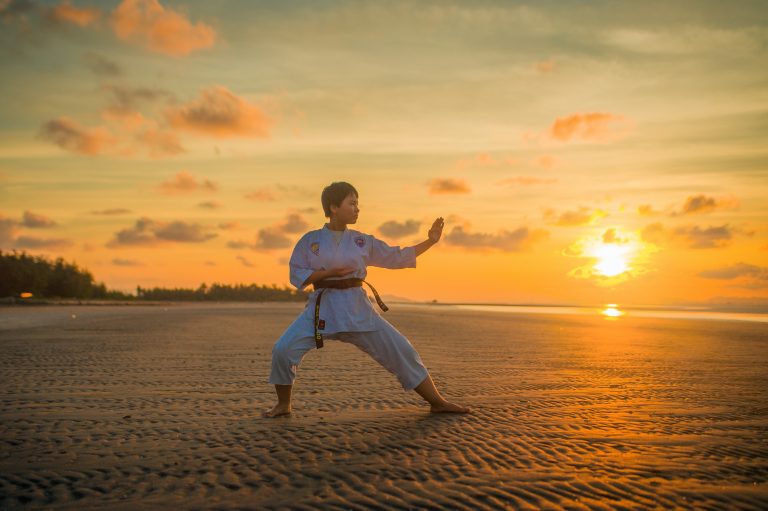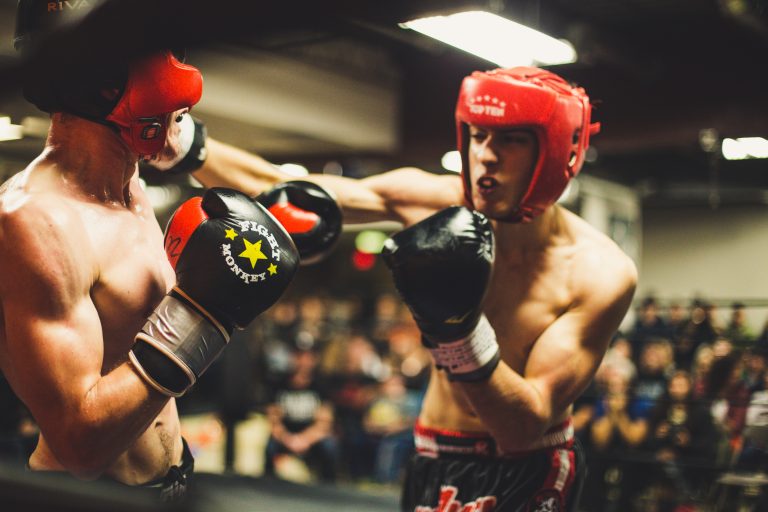What are the Benefits of Learning Karate?
Karate is an ancient martial arts form originating in Okinawa, Japan. It’s been around for centuries and continues to be popular today. Karate focuses on using the hands, feet, knees and elbows to defend oneself from an attack. But there are many additional benefits of learning karate that people may not be aware of. From physical benefits to mental and emotional gains, karate is great for everyone, regardless of age or experience level.
1. Improved Physical Fitness
Karate is a great way to get a full-body workout. It strengthens and tones the muscles while challenging your coordination, balance and agility. During class, you’ll practice moves and drills to build muscle, work your core and increase cardiovascular endurance. Plus, karate classes offer an environment where people can work at their own pace to gradually increase their stamina.
2. Improved Flexibility
A large portion of karate is focused on stretching and increasing mobility. While many people think martial arts are about strength, it actually requires more flexibility than most people realize. Karate classes typically combine static stretching with dynamic movements to improve overall range of motion.
3. Improved Balance And Coordination
Since karate involves many different stances, blocks and punches, it helps improve balance and coordination. Regular practice helps you become more mindful of the way your body moves, resulting in better coordination and stability. These improvements will help in other activities, such as running, playing sports and even day-to-day activities like walking.
4. Improved Mental Strength
Karate is more than just physical training; it’s also about honing your mental strength as well. As you practice techniques and drills, you’ll develop focus, discipline and dedication. You will also learn how to stay in the moment and be present with your body—a skill that can be transferred to everyday life. Focusing on your breathing during class can also help reduce stress and anxiety levels, resulting in improved mental clarity.
5. Improved Self-Defense Skills
One of the main reasons people learn karate is for self-defense purposes. Though not preferred, there are times when you may need to defend yourself against an attack. Karate classes help teach you how to protect yourself should danger arise. You will learn blocks against punches, kicks and grabs as well as joint locks that can disable an attacker. Knowing how to defend yourself is empowering, and it’s a skill you can carry with you everywhere you go.
6. Improved Confidence
Karate is a great way to build confidence. As you learn more moves and drills, you’ll feel a sense of success that will carry over into your daily life in other areas such as work and relationships. Becoming aware and present in the moment will help boost your self-esteem and give you the courage to face challenges with ease. Plus, as you progress in your karate skills, your sense of confidence will continue to rise.
Karate is an activity that offers a wealth of benefits both physically and mentally. There’s no age limit; anyone of any age who is interested in martial arts can learn karate and start to reap its benefits. Sure, the physical training can be challenging at times, but with regular practice, the rewards are plenty! Whether you join a class or practice at home, don’t let yourself miss out on the great advantages of learning karate.
The Benefits of Learning Karate: Frequently Asked Questions
Karate is a martial art that originated in Okinawa, Japan. Its popularity has spread around the world, attracting millions of people who want to learn the ancient fighting techniques and gain physical and mental strength. Whether you are a beginner or an experienced practitioner, you might have some questions regarding the benefits of learning karate. In this blog post, we will address the most frequently asked questions and provide comprehensive answers.
1. What are the physical benefits of learning karate?
Karate is a full-body workout that requires strength, speed, balance, flexibility, and coordination. As such, training karate can help you:
- Build strength: Karate involves various types of movements that require you to use your muscles to generate force. By doing so, you can build muscle mass and improve your overall strength.
- Boost cardiovascular health: Karate involves high-intensity movements that can increase your heart rate and improve blood flow, thus reducing the risk of heart disease, stroke, and other cardiovascular conditions.
- Enhance flexibility: Karate requires you to execute a wide range of kicks, punches, and blocks, which can help you improve your flexibility and range of motion. This can prevent muscle stiffness and joint pain.
- Improve balance and coordination: Karate involves a lot of dynamic movements that require you to maintain your balance and coordinate your actions. By doing so, you can improve your body awareness and motor skills.
2. What are the mental benefits of learning karate?
Apart from the physical benefits, learning karate can also have a positive impact on your mental health. Here are some examples:
- Build self-confidence: Karate training can help you develop a sense of self-assurance and self-esteem, as you learn to master various techniques and overcome challenges.
- Reduce stress and anxiety: Karate involves controlled breathing and meditation techniques that can help you relax and reduce stress and anxiety.
- Increase focus and concentration: Karate requires you to concentrate on your movements and the movements of your opponent, which can improve your focus and attention span.
- Develop discipline and resilience: Karate requires consistent practice and dedication, which can help you develop discipline and resilience in other areas of your life.
3. Is karate suitable for all ages?
Yes, karate is suitable for all ages. Children as young as 4 or 5 years old can start learning karate, as long as they have the physical and mental ability to follow instructions and practice in a safe environment. Adults of all ages can also benefit from learning karate, as it can help them stay active, healthy, and mentally sharp.
4. What equipment do I need to start learning karate?
To start learning karate, you don’t need to buy expensive equipment. Here’s a list of the essential items:
- Training uniform: A karate training uniform, or gi, consists of a jacket and pants made of lightweight, breathable cotton. This allows you to move freely and stay cool during training.
- Belt: A colored belt indicates your level of experience in karate. Beginners usually start with a white belt, and then progress to yellow, orange, green, blue, purple, brown, and black, depending on their skills and knowledge.
- Protective gear: To avoid injuries during training, you might need to wear protective gear, such as sparring gloves, shin guards, mouthguards, and headgear. Your instructor will advise you on the appropriate gear.
5. How long does it take to become proficient in karate?
The time it takes to become proficient in karate depends on various factors, such as your age, physical condition, natural abilities, and training frequency. Generally, it takes several months to a few years to learn the basic techniques and earn your first belt rank. To become a black belt, it usually takes 5 to 10 years of consistent practice and dedication.
6. Can learning karate help me defend myself in real-life situations?
Yes, learning karate can help you defend yourself in real-life situations, as it teaches you practical techniques for striking, blocking, grappling, and escaping from attackers. However, it’s important to remember that self-defense is not just about physical skills, but also about awareness, avoidance, and de-escalation. Your instructor will also teach you these essential aspects of self-defense.
7. How can I find a good karate school and instructor?
To find a good karate school and instructor, you should consider the following factors:
- Qualifications: Your instructor should have a recognized certification from a reputable karate organization.
- Experience: Your instructor should have several years of teaching and practicing karate, and should be able to demonstrate advanced skills.
- Teaching style: Your instructor should be able to adapt their teaching style to your needs and abilities, and provide constructive feedback and encouragement.
- Atmosphere: The karate school should provide a safe and supportive environment for learning, with clean facilities and friendly staff.
Conclusion
Learning karate can provide numerous physical and mental benefits, such as improved strength, cardiovascular health, flexibility, balance, coordination, self-confidence, stress management, focus, and resilience. It’s suitable for all ages, and requires only basic equipment, such as a training uniform, belt, and protective gear. To become proficient in karate, it takes time, dedication, and guidance from a qualified and experienced instructor. By finding a good karate school and instructor, you can start your journey towards a healthier and more empowered life.
Inhaltsverzeichnis






